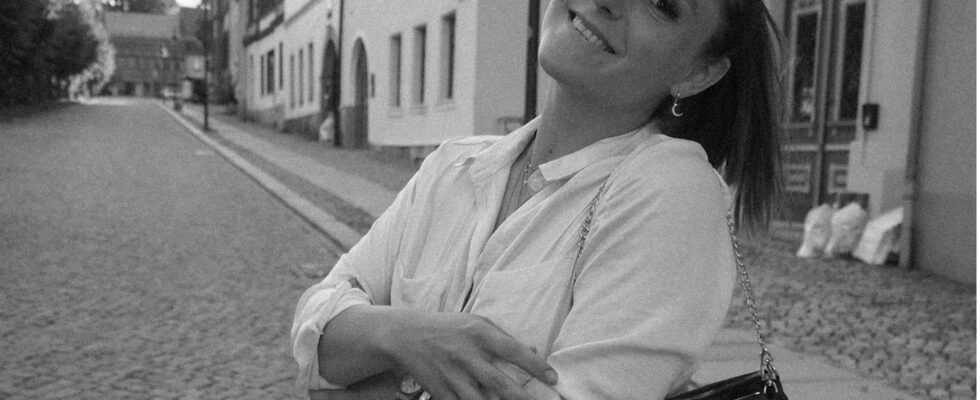Reader tells
“My struggles as a deaf have made me strong”
Christine (30) is a mother of two and has been deaf since birth
© private
BRIGITTE.de reader Christine (30) is deaf, just like her husband and her two children. How is she coping with her life?
I have been deaf since I was born. It wasn’t always easy, especially until I was six, when everyone in my family but my brother could hear. But he was rarely at home, so I often had no one to talk to.
Sign language was forbidden in school
The situation at school was also particularly stressful for me. Although I first went to a kindergarten for the deaf and then to the associated school for the deaf, we were forbidden to use sign language; the relevant law was only changed in 2002. Until then, the pedagogical concept of “oral education” was pursued, which focused exclusively on verbal communication. It was hoped that we would learn to speak after all.
Of course we still signed secretly as children, but that was a great psychological burden because it was forbidden. In addition, there were constant misunderstandings in communication, both with the teachers and with my parents.
When I was seven years old, I had an operation and had a cochlear implant on my left ear, which is a hearing prosthesis. With it I could at least hear some noises, but not learn to speak automatically. To this day, my listening comprehension has continued to improve, but my pronunciation is not comparable to that of hearing people. The easiest way for me to communicate in sign language with my many deaf friends, my children and my husband, as this is my mother tongue.
My husband and two children are also deaf. The children also have cochlear implants, and my daughter Emilie goes to regular school. My son is only two years old and still at home.
The fight for a place in the mainstream school
I love my role as a mother and I am immensely proud of my two children, but I often come up against limits in everyday life. When my daughter Emilie started school – unlike hearing children – it was a huge effort. I wanted her to attend a regular school, because deaf schools in Germany do not have the same standards, and I wanted my child to receive the best possible support together with their peers. Emilie previously went to a kindergarten for deaf children, which offers special language support so that she learned to speak in an understandable manner relatively quickly. Nevertheless, at first many of the teachers and even the principal were against her going to a regular school afterwards. A lot of discussions and applications had to be made before we finally got the approval. I am so glad that a team of interpreters supported us, otherwise we would never have made it.
Many obstacles are put in the way of the deaf
I would also like to do another training, but the cost bearer does not cover the interpreting costs for a second training. Another problem is the lack of interpreters: If you want to book a: n interpreter: in, you usually have to do this well in advance. But in an emergency, such as when I need to see a doctor quickly, nobody is often available. And the doctors: inside are always under time pressure. You cannot put yourself in my shoes or take the time to delve deeper into my problems.
Deaf people are also disadvantaged in road traffic. I drive into every traffic jam because I can’t hear the radio. Subtitles are still not everywhere on television either. With the mask requirement, my communication situation has worsened because hardly anyone takes the trouble to write down their concerns and explain themselves to me. For us deaf people, there has been too little support and understanding from people who can hear. Compensating for this takes a lot of strength every day. Deaf people have to fight much harder because they have so many barriers to break down.
In America, for example, there are already good concepts in all areas of life for integrating the deaf: there are subtitles on television, interpreters are present at most events, and even the police and fire brigade often work with sign language. That’s how I hope for Germany too, but that’s not in sight.
I wish that it would be easier for us in the future. Even if I know today: My struggles as a mother, as a woman and as a deaf person have also made me strong.
